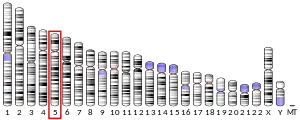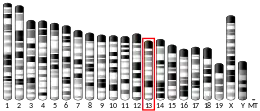| IRX2 | |||||||||||||||||||||||||||||||||||||||||||||||||||
|---|---|---|---|---|---|---|---|---|---|---|---|---|---|---|---|---|---|---|---|---|---|---|---|---|---|---|---|---|---|---|---|---|---|---|---|---|---|---|---|---|---|---|---|---|---|---|---|---|---|---|---|
| Identifiers | |||||||||||||||||||||||||||||||||||||||||||||||||||
| Aliases | IRX2, IRXA2, iroquois homeobox 2 | ||||||||||||||||||||||||||||||||||||||||||||||||||
| External IDs | OMIM: 606198 MGI: 1197526 HomoloGene: 56490 GeneCards: IRX2 | ||||||||||||||||||||||||||||||||||||||||||||||||||
| |||||||||||||||||||||||||||||||||||||||||||||||||||
| |||||||||||||||||||||||||||||||||||||||||||||||||||
| |||||||||||||||||||||||||||||||||||||||||||||||||||
| |||||||||||||||||||||||||||||||||||||||||||||||||||
| |||||||||||||||||||||||||||||||||||||||||||||||||||
| Wikidata | |||||||||||||||||||||||||||||||||||||||||||||||||||
| |||||||||||||||||||||||||||||||||||||||||||||||||||
Iroquois-class homeodomain protein IRX-2, also known as Iroquois homeobox protein 2, is a protein that in humans is encoded by the IRX2 gene.[5][6]
Function
IRX2 is a member of the Iroquois homeobox gene family. Members of this family appear to play multiple roles during pattern formation of vertebrate embryos.[5]
Cancer
IRX2 gene has been observed progressively downregulated in Human papillomavirus-positive neoplastic keratinocytes derived from uterine cervical preneoplastic lesions at different levels of malignancy. [7] For this reason, IRX2 is likely to be associated with tumorigenesis and may be a potential prognostic marker for uterine cervical preneoplastic lesions progression. [7]
References
- 1 2 3 GRCh38: Ensembl release 89: ENSG00000170561 - Ensembl, May 2017
- 1 2 3 GRCm38: Ensembl release 89: ENSMUSG00000001504 - Ensembl, May 2017
- ↑ "Human PubMed Reference:". National Center for Biotechnology Information, U.S. National Library of Medicine.
- ↑ "Mouse PubMed Reference:". National Center for Biotechnology Information, U.S. National Library of Medicine.
- 1 2 "Entrez Gene: iroquois homeobox 2".
- ↑ Ogura K, Matsumoto K, Kuroiwa A, Isobe T, Otoguro T, Jurecic V, Baldini A, Matsuda Y, Ogura T (2001). "Cloning and chromosome mapping of human and chicken Iroquois (IRX) genes". Cytogenet. Cell Genet. 92 (3–4): 320–5. doi:10.1159/000056921. PMID 11435706. S2CID 46509502.
- 1 2 Rotondo JC, Bosi S, Bassi C, Ferracin M, Lanza G, Gafà R, Magri E, Selvatici R, Torresani S, Marci R, Garutti P, Negrini M, Tognon M, Martini F (April 2015). "Gene expression changes in progression of cervical neoplasia revealed by microarray analysis of cervical neoplastic keratinocytes". J Cell Physiol. 230 (4): 802–812. doi:10.1002/jcp.24808. hdl:11392/2066612. PMID 25205602. S2CID 24986454.
Further reading
- Lam CY, Tam PO, Fan DS, et al. (2008). "A genome-wide scan maps a novel high myopia locus to 5p15". Invest. Ophthalmol. Vis. Sci. 49 (9): 3768–78. doi:10.1167/iovs.07-1126. PMID 18421076.
- Cirulli ET, Kasperavičiūtė D, Attix DK, et al. (2010). "Common genetic variation and performance on standardized cognitive tests". European Journal of Human Genetics. 18 (7): 815–20. doi:10.1038/ejhg.2010.2. PMC 2987367. PMID 20125193.
- Adamowicz M, Radlwimmer B, Rieker RJ, et al. (2006). "Frequent amplifications and abundant expression of TRIO, NKD2, and IRX2 in soft tissue sarcomas". Genes Chromosomes Cancer. 45 (9): 829–38. doi:10.1002/gcc.20343. PMID 16752383. S2CID 24491021.
- Matsumoto K, Nishihara S, Kamimura M, et al. (2004). "The prepattern transcription factor Irx2, a target of the FGF8/MAP kinase cascade, is involved in cerebellum formation". Nat. Neurosci. 7 (6): 605–12. doi:10.1038/nn1249. PMID 15133517. S2CID 23807922.
- Bonaldo MF, Lennon G, Soares MB (1996). "Normalization and subtraction: two approaches to facilitate gene discovery". Genome Res. 6 (9): 791–806. doi:10.1101/gr.6.9.791. PMID 8889548.
- Lewis MT, Ross S, Strickland PA, et al. (1999). "Regulated expression patterns of IRX-2, an Iroquois-class homeobox gene, in the human breast". Cell Tissue Res. 296 (3): 549–54. doi:10.1007/s004410051316. PMID 10370142. S2CID 37046813.
- Strausberg RL, Feingold EA, Grouse LH, et al. (2002). "Generation and initial analysis of more than 15,000 full-length human and mouse cDNA sequences". Proc. Natl. Acad. Sci. U.S.A. 99 (26): 16899–903. Bibcode:2002PNAS...9916899M. doi:10.1073/pnas.242603899. PMC 139241. PMID 12477932.
This article incorporates text from the United States National Library of Medicine, which is in the public domain.



